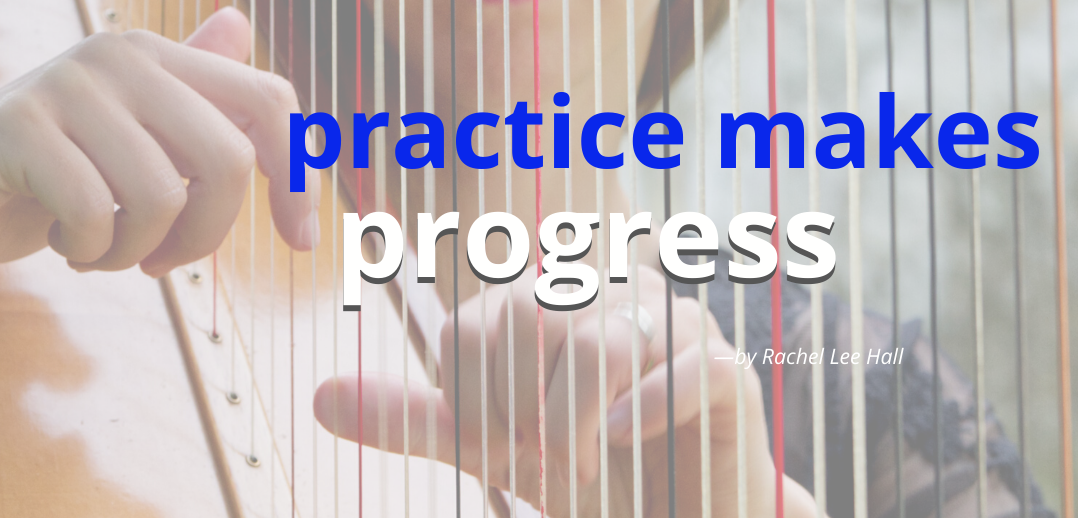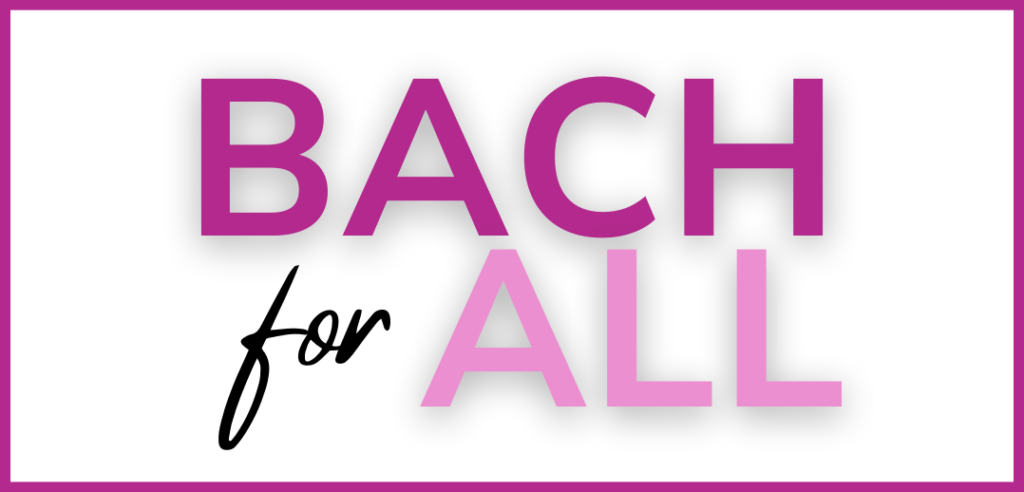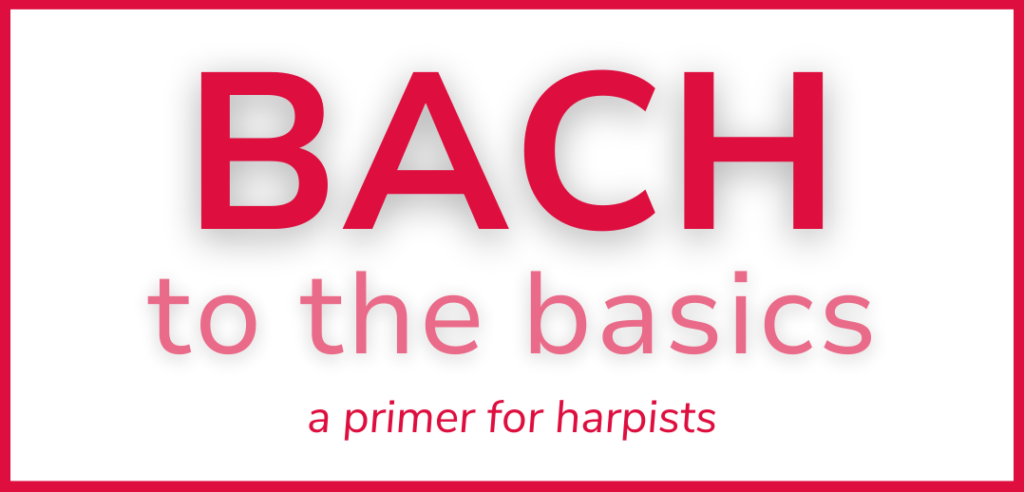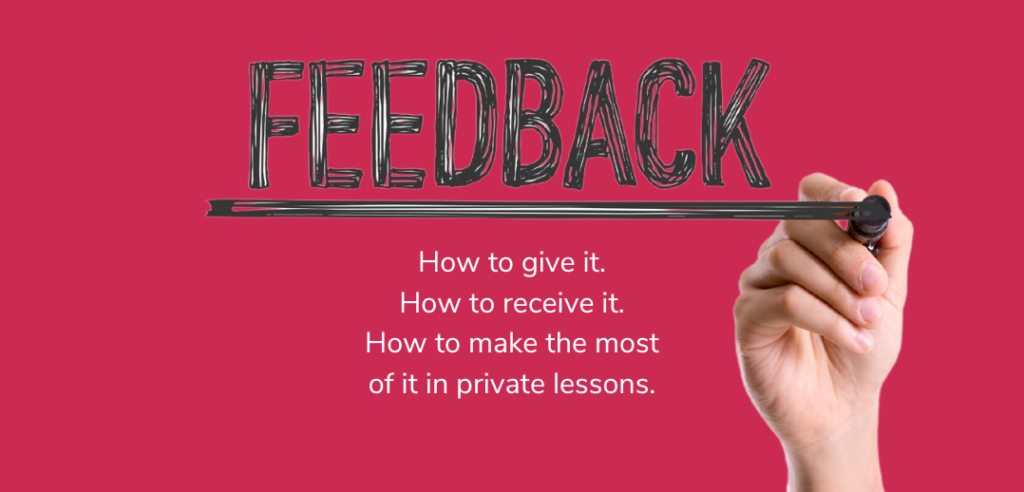Have you ever found yourself in a practice slump? You come begrudgingly to a practice session, grumbling to yourself, “I’d rather be doing just about anything else right now.” Or you endure to the end of your session and wonder, “Did I even make any progress at all?” We’ve all been there. Practicing well is easier said than done. Maintaining focus and staying motivated to practice can always be a struggle, but especially so in this season of staying home, canceled gigs, and quarantine. Our routines have drastically changed, and even as we slowly emerge from quarantine regulations, adjusting to the new normal will continue to be a challenge. In this new and uncertain season, how can we keep from being discouraged? How can we fight against being more lax in our practice routines? How can we maintain our focus and stay motivated to reach our goals in the practice room?
In my own struggles in the practice room, I have found the accumulation of small advantages to be the biggest aid in the overwhelming sea of non-motivation and distraction. So here are my top five life hacks for minimizing your practice slumps and maximizing your focus and motivation as you seek to accomplish your most ambitious harp goals.
#5 Deadlines make the world go ’round
“To achieve great things, two things are needed: a plan, and not quite enough time.”
—Leonard Bernstein
I can’t tell you how many times I have accepted a last-minute gig or recital, frantically practicing for hours leading up to the big day and wondering if I could really pull it off. Somehow, no matter how frantic I feel, it always comes together at the last minute. I think it comes from a fear of what might happen if it didn’t come together—a healthy kind of fear that motivates me to do whatever it takes to meet the goal. It reminds me of something Leonard Bernstein once said, “To achieve great things, two things are needed: a plan, and not quite enough time.”
That quote is interesting to read in our present situation, in which we have endured months of quarantine restrictions with more time than we knew what to do with. Though we might have found ourselves with a lot of extra time for practicing, we also may have been monumentally unmotivated. The fact that our performances and gigs have been canceled not only takes away our ability to perform, share, connect, and communicate—it also threatens to take away our drive to practice. For many of us, not having performances to work toward makes us scratch our heads in the practice room and wonder, “What’s the point?”
Perhaps your gigs and recitals haven’t been rescheduled yet, but even so, you can still create some deadlines for yourself designed to stretch you, grow you, and keep you motivated in the practice room. You could commit to live-streaming on your social media channels once a week, create a music video, set up some extra online lessons with your teacher, or invite a few friends to a driveway recital or house concert. It doesn’t matter what it is as long as it’s a deadline that will get you from point A to point B. Often, a simple deadline is the only motivation we need to achieve some productivity in the practice room.
#4 Use a practice journal
Keeping a practice journal has benefited me in a host of ways. It helps me stay organized as I log my hours and record my tasks and deadlines. It keeps me motivated as I work towards meeting all the goals I write out at the beginning of each week. It helps me with stress, too—once I see all I have to do in a single week on paper, it looks a lot less daunting. And it is indescribably encouraging as I flip through my struggles and successes in previous weeks and months and see how far I’ve come.
Last year, the value of practice journaling impressed me so much that I scoured the web for a practice journal that wasn’t bland, uninspiring, or tiresome. Since I couldn’t find one anywhere, I set out to create one. I worked with my artistic brother to create the Purpose In Practice Journal, which includes inspirational quotes, coloring pages, habit trackers, and practice tips for musicians to stay inspired and motivated in the practice room. Ever since the journal was first published in March, I have encouraged my students and Instagram followers to use it, and the response has been astounding. I noticed that my students’ improvement, determination, and motivation suddenly spiked. And musicians from all over the world started posting their journal entries on Instagram, along with some incredibly inspiring practice videos and success stories. It turns out that writing down a few simple goals in an inspiring format was all it took for these musicians to carry them out and be inspired to accomplish more.
Whether you use an actual practice journal or a run-of-the-mill notebook, taking a few moments at the beginning and end of your practice session to jot down a few words can work wonders. Keep a log of your day-to-day activities at the harp, including your daily, weekly, and monthly goals, what rep you worked on, what went well, what you could do better, your overall mood during practice, what practice methods you used, and total practice time. And as you write, don’t forget to flip back and be encouraged and motivated by all the ways you are improving.
#3 Put your phone on airplane mode
Phones can be a great advantage to us in the practice room, with the use of tuner and metronome apps, iTunes and Spotify, Google Translate, and a world of knowledge at our fingertips. A smartphone can be one of our most helpful practice companions. But a smartphone also has the potential to become our greatest distraction in the practice room. Have you ever caught yourself scrolling through Instagram at your harp, wondering how you got there—and how long you’ve been scrolling? Next time your phone sends you a weekly screen time report, do some quick math. Multiply your hourly average by 365, then divide that by 24. That’s how many days you’re spending every year staring at your phone screen alone. It’s eye opening to realize how much time we could save if we shaved off just a few minutes of screen time each day—and how much more we could accomplish.
Next time you’re practicing, try an experiment. Put your phone on airplane mode and commit to completing your whole practice session without taking it off. For me, placing my phone in airplane mode has been transformative, because it eliminates the temptation to scroll through social media while still making available all the helpful parts of practicing with a smartphone. While my phone is in airplane mode, I can tune, use my metronome, record myself, and listen back. I can even have recordings of my repertoire downloaded to my phone beforehand to study and play along with them. With my phone on airplane mode, I don’t have to worry about distractions like texts, emails, or Facebook notifications. (Let’s be honest, I can probably wait an hour to be notified that I have Facebook memories to look back on). Instead, I can have the freedom to focus all my attention at the harp and accomplish my goals faster. Try putting your phone on airplane mode, and you just might discover that you can reap the benefits of having a smartphone without suffering the consequences.
#2 Those who band together stand together
Part of what contributes to lack of motivation and focus in the practice room is discouragement and burnout. Sometimes improvement in your playing is so incremental that it’s hard to see, and often practicing feels like it’s one step forward, two steps back. If I could tell you only one thing to guard against burnout and discouragement in the practice room, it would be to join a band. And no, I don’t mean the kind of band teenagers start in their parents’ garages. I’m talking about a band of people who will support you, motivate you, encourage you, and challenge you. Banding together with a community might be the one thing that keeps you afloat in the inevitable ebb and flow of your practice journey.
The secret to finding the right community is to choose one with the right balance of affirmation and expectation. In other words, you want a community that will encourage you and build you up in the right ways, while also not being afraid to prod you, challenge you, and hold you accountable. Your “band” could be found anywhere: your studio mates, your family, a local music club or arts organization, or a few really close friends. And don’t be afraid to band yourself to an online community, too—I have found the harp community especially on Instagram to be affirming and encouraging in all the ways a “band” should be.
The wonderful thing about banding yourself together with a community is that it’s always reciprocal. For all the times I’ve needed my community to hold me to commitments, expect me to follow through, and sometimes hold my hand the entire way, I’ve been able to do the same for someone else. And I’ve found that it’s just as rewarding to be the giver in a community as it is to be the receiver. I’m so thankful to have my wonderful band of friends, family, and colleagues who are committed to building one another up and growing together. If you can find such a community, you will do well.
#1 Put purpose into practice
Deadlines, journaling, phone use, and community are of little value unless you fulfill the number one life hack: find your purpose. In order to stay focused and motivated while you practice, you must have a purpose that makes all that hard work worth it. Ask yourself, what do you most want to accomplish at the harp—or with your life in general? At the end of your life, what would make you say, “I’m satisfied?” Take some time to think about this. Your purpose should be something you wholeheartedly believe in. Maybe your purpose is as simple as making peoples’ lives happier through the harp. Maybe it’s more specific, like founding an arts center, commissioning new works that showcase the harp, or advocating for a cause. Whatever it is, finding your purpose will fuel you every day to do your best and reach your goals.
Why is finding a purpose so important for practicing? Well, if you fully believe in your purpose, you will be willing to do whatever it takes to make it happen. That purpose will fuel you with energy and motivate you every day. Suddenly, all those long hours in the practice room will be transformed from drudgery to destiny. They will be worth it, because little by little, piece by piece, you will be slowly chipping away at your goals and forming and molding your dream into reality.
Finding motivation and maintaining your focus in your practice sessions might be easier said than done, but implementing a few simple tasks can boost your productivity levels immensely. It’s hard to quantify the value of accumulating a handful of small advantages, like setting up a few deadlines for yourself, keeping a practice journal, eliminating phone distractions, finding a community, or reminding yourself of your purpose. Next time you find yourself in a bit of a practice slump, try one of these life hacks and see if it doesn’t add some sparkle and life to your practice session. And who knows? It might be just the thing you need to get you back on your feet and running towards achieving your grandest goals. •
















